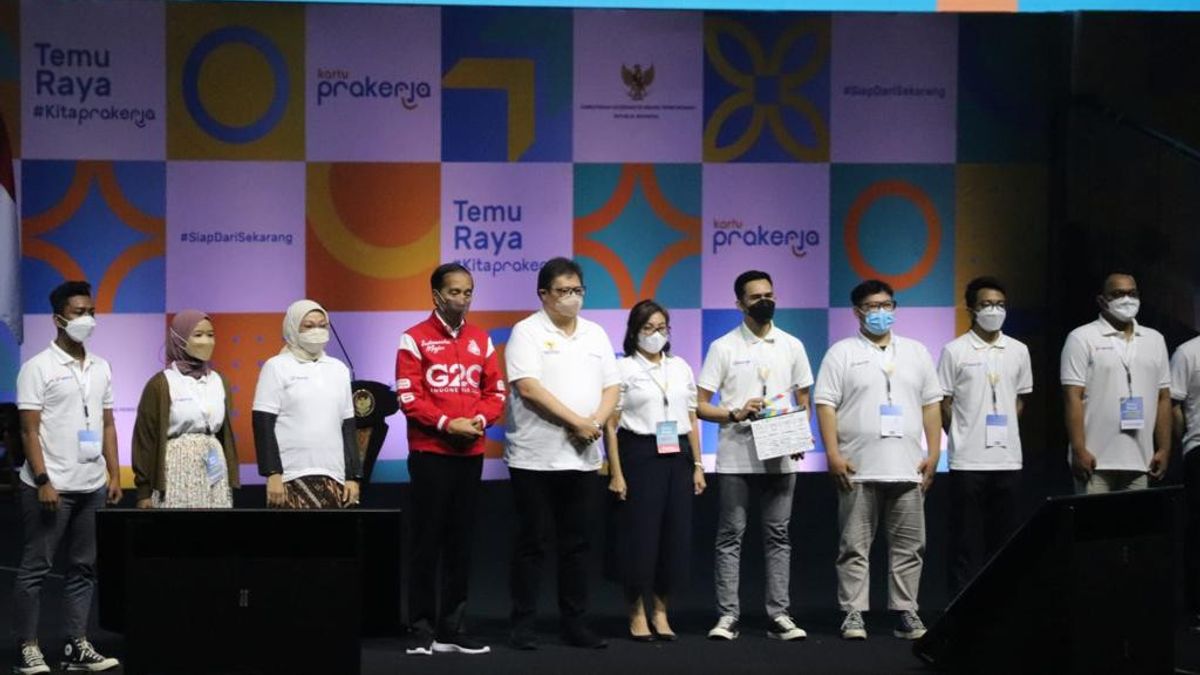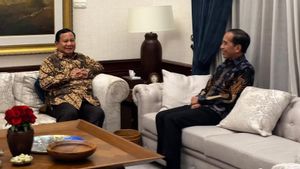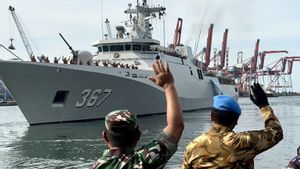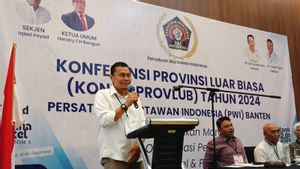BOGOR - President Joko Widodo assessed the Pre-Employment Card Program as one of the successful programs in his government.
In particular, the President praised the performance of the Coordinating Minister for the Economy Airlangga Hartarto as one of the driving forces for the success of the program.
This compliment was conveyed by Jokowi when addressing the alumni of the Pre-Employment Card program during the Pre-Employment Card Program Alumni Gathering at the Sentul International Convention Center, Bogor, West Java.
"I respect the Coordinating Minister for the Economy (Airlangga Hartarto). He is the 'motor', which drives the Pre-Employment Card and all PMOs who are part of it," said President Jokowi in his remarks, Friday, June 17.
The President again praised Airlangga and the implementing management of the Pre-Employment Card Program after revealing the results of a survey by the Central Statistics Agency (BPS) which stated that as many as 88.9 percent of recipients of the Pre-Employment Card improved their skills.
"That is, the results found 88.9 percent. This is what I must appreciate, the Coordinating Minister and the whole team," he said.
Coordinating Minister Airlangga himself reported to the President that the Pre-Employment Card Program received praise from several friendly countries. In fact, the program initiated to reduce the impact of the Covid-19 pandemic can be imitated by various developing countries in the world.
Not only developing countries, Airlangga admitted that while in Davos, the Netherlands also praised the Indonesian Pre-Employment Card program.
"In a meeting in Davos the minister from the Netherlands with the prime minister also said that the pre-employment card could be replicated in other developing countries, Mr. President," said Coordinating Minister Airlangga.
The chairman of the Golkar Party said that the Pre-Employment Card program is one of the most massive Government to People (G2P) programs compared to other countries.
In addition, at the UNESCO meeting in Marrakesh, said Airlangga, the Pre-Employment Card program was also chosen as a program to face future work challenges during digital transformation to a green economy.
"We also saw that this program was assessed by external institutions, such as CSIS, BPS, then from Japan there were J-PAL Southeast Asia, UNDP, the World Bank, with TNP2K. All of them found that this program had a positive impact on improving the skills and employment of participants and this emphasized positive impact of the Pre-Employment Card Program," said Airlangga.
The Coordinating Minister for the Economy added that up to now, as many as 12.8 million people have participated in the Pre-Employment Card program and 95 percent of them have received incentives.
The demographics of the Pre-Employment Card participants are 56 percent live in villages, 49 percent are women and about three percent are people with disabilities.
In addition, as many as 30 percent of participants who were previously unemployed are now working or entrepreneurship, while 90 percent admitted that the Pre-Employment Card helps increase competence, productivity and increase competitiveness.
Then as many as 66 percent use pre-employment certification to get a job. Then, 92 percent of participants used aid funds of Rp 600 thousand to buy food and 70 percent for business capital.
Airlangga said, as many as 27 percent of the recipients had never had an account.
"But 27 percent chose to use an e-wallet so that this became a financial inclusion program," he said.
The English, Chinese, Japanese, Arabic, and French versions are automatically generated by the AI. So there may still be inaccuracies in translating, please always see Indonesian as our main language. (system supported by DigitalSiber.id)












